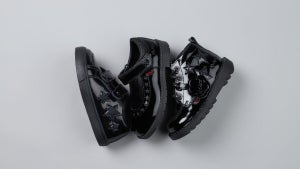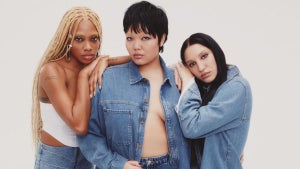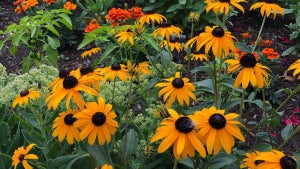
The world of skincare is vast and exciting. With so many options and products to try, we understand that it can be daunting as each week seems to bring a new essential ingredient, making crafting the ultimate skincare routine feel like a never-ending task.
Streamlining all that knowledge into one handy guide, here’s the A-Z of perfect skin in The Hut’s skincare alphabet.
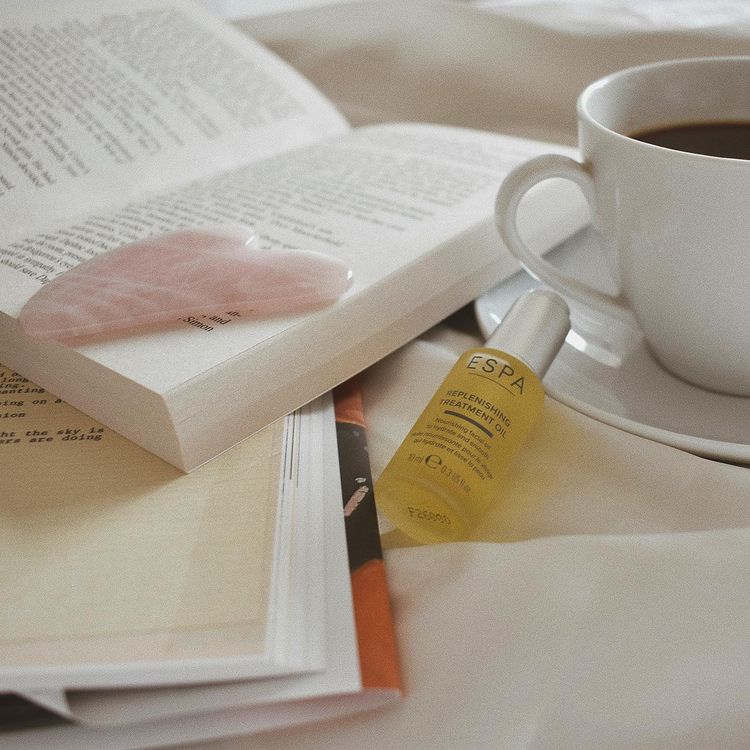
A is for Antioxidants
First up in our skincare alphabet is one you'll have heard of before, but antioxidants really are key in both your diet and skincare. Antioxidants are defenders of your body, fighting off harmful molecules and protecting your health and therefore tackling inflammation and allowing your skin to repair itself more effectively. Naturally what you eat will have a knock-on effect on your skin, so eat plenty of antioxidant-rich food like berries, beans and even rich dark chocolate, and you’ll see a positive result in your complexion. But boost your intake by adding antioxidant products into your skincare routine, being effective for anti-ageing, complexion balancing and brightening.
B is for BHA
BHA stands for beta hydroxy acid, and is another name for salicylic acid, a must-have ingredient for fighting acne. Salicylic acid is a derivative of aspirin, also being used in medicines like Pepto-Bismol due to its amazing anti-inflammatory qualities. It’s able to penetrate the skin’s surface so it is great for really getting in there and tackling blemishes, being exfoliating enough to empty out your pours but gentle enough for everyday use, not causing your skin to panic and create excess oil. It’s found in most cleansers, but if you’re looking for a more intense acne treatment, you can also buy the acid on its own in a diluted form to dab directly onto blemishes.
C is for Collagen
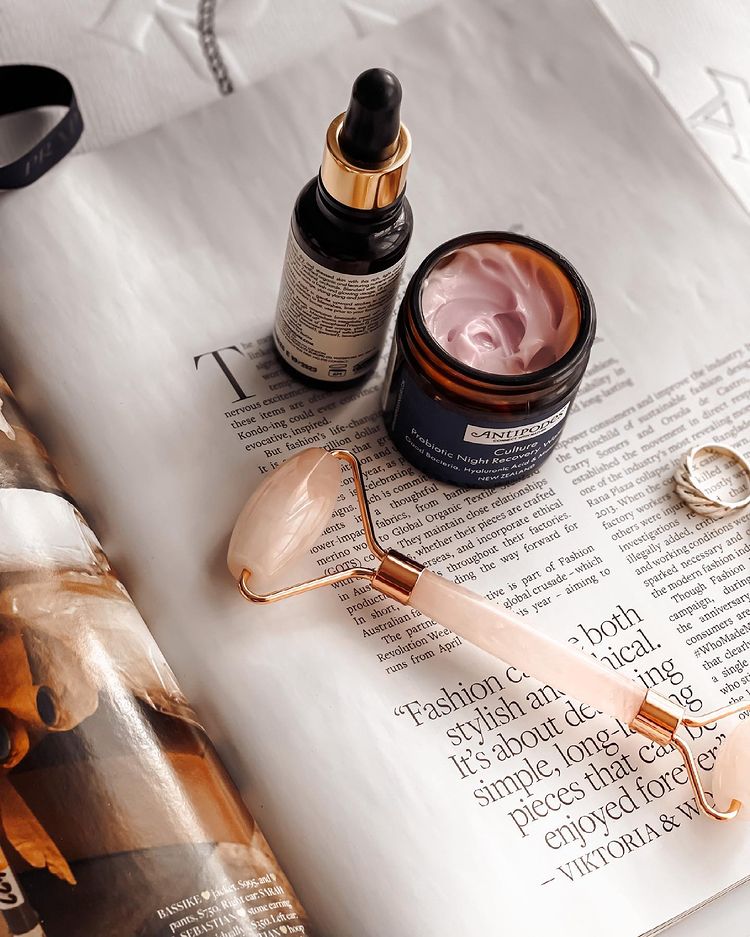
Collagen is the most plentiful protein in your body, it’s the major building block of everything from your bones to your skin. Think of it as a glue; it helps your blood clot, keeps your skin cells together, helps keep your bones strong and break resistance. As you age your body starts to produce less and less collagen, which is why you become weaker and see your skin growing less plump, so by taking collagen supplements or using collagen in your skincare you can help to tackle this and give yourself a boost. Helping with skin elasticity to keep your skin firm, collagen is a key ingredient for anti-ageing and tackling fine lines.
D is for Double Cleansing
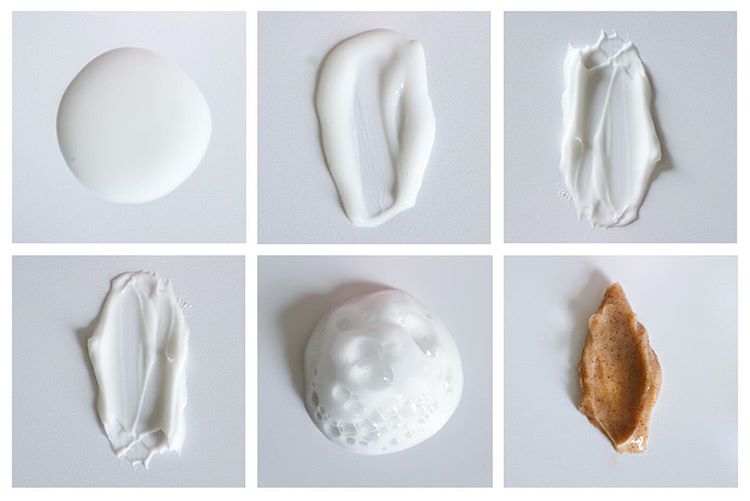
Obviously washing your face at the end of the day is a given, but especially if you’re using a cleanser that also acts as a makeup remover, you should really repeat the whole process. If you imagine the layer of dust, pollution and perspiration that will have settled on your face by the end of the day, your first round of cleansing is simply removing that. For a deep, thorough clean, repeat the process to properly get down to your pours.
E is for Exfoliating
And by that we mean, do it less. While scrubbing away at your face with a gritty exfoliator might feel satisfying, this might be doing more damage than good to your skin. Harsh exfoliants strip your skin of it natural oil, causing it to panic and overproduce. You should exfoliate no more than 2-3 times a week, and only 1-2 times if you have sensitive skin. Instead of using a gritty scrub, try using a chemical exfoliant like glycolic acid, or using some technology and investing in a tool like a face brush.
F is for Face Mapping
The best thing you can do for your skin is to really get to know it. For the majority of us we don’t really know our skin type, or might have patches of dryness along with oily patches. It might be that using one product all over your face might not be helpful if each section has a different need, so study your face and map out your skin type and problems to tackle for each area, giving you a guide for what sorts of products you should be looking at. Once you have this map you can even dive into the world of multi-masking.
G is for Glycerin
Glycerin is found in natural fats and is one of the most powerful hydrating and brightening ingredients in our skincare alphabet. Unlike other hydrators, glycerin works on the surface drawing hydration up to the top layer of your skin, making it perfect for people who deal with skin issues like eczema or psoriasis.
H is for Hyaluronic Acid
Sounds scary but we promise it’s not. Hyaluronic acid is produced naturally as a structural component of your skin, making it able to retain moisture. Able to soak up a thousand times its own weight in water, hyaluronic acid is a powerful product when it comes to hydration, found in most moisturisers. Hydrating without clogging your pores, this is a must-use for keeping skin looking healthy and plump.
L is for Lactic Acid
Lactic acid is our go-to for acid exfoliators. Coming from milk and fruit sugars, lactic acid works on the surface of your skin, un-glueing dead skin cells to reveal a brighter complexion. It’s also a great product to tackle hyperpigmentation, helping to balance out your skin tone while also maintaining your skin's moisture. You can either use diluted lactic acid morning and night as many toners contain the ingredient or for a more intense treatment, you can get a lactic acid peel using a stronger formula.
M is for Masks
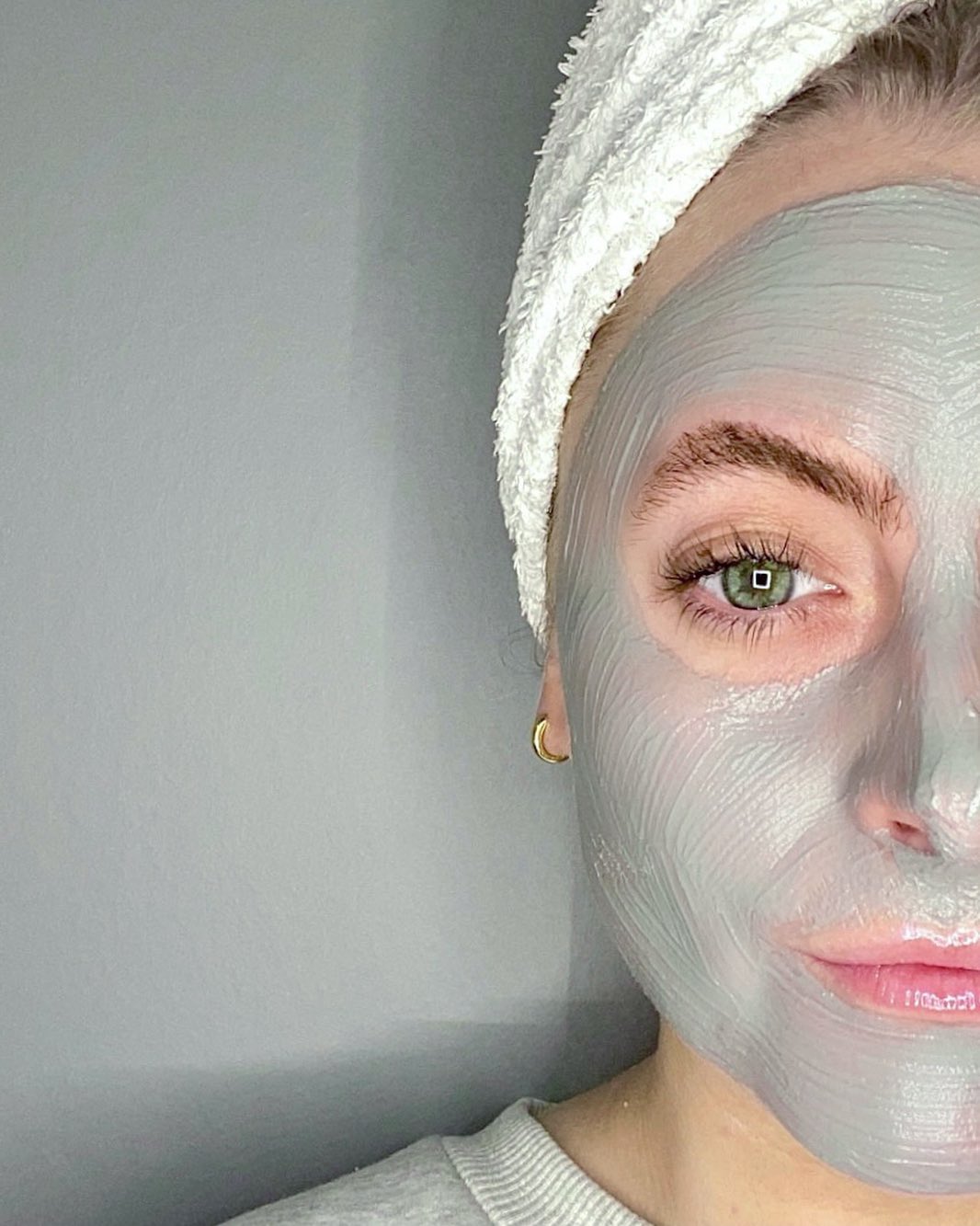
This may seem like a given for our skincare alphabet, but masks really are a must. Not only are they an easy way to make you feel pampered and refreshed, but there are real benefits to letting a mask sit on your skin for a good 10-15 minutes (maybe more like 45, who are we kidding?) Face masks can provide a real noticeable boost in your skins hydration, complexion and work to draw out any excess oils or blemishes, giving your face a thorough and deep clean. Depending on the type of product you go for, from hydrating sheet masks to pore pulling peel-offs, as long as it’s packed full of all the right ingredients you’ll definitely benefit from the moment of relaxation.
N is for Niacinamide
The hardest to pronounce in our skincare alphabet, niacinamide is made up of Vitamin B3. If you’re looking for a good multi-tasking ingredient, this is the one for you. Niacinamide helps regulate your oil production, tackle acne, reduce the appearance of large pores and as a result help with all-over brightening, so it packs a punch!
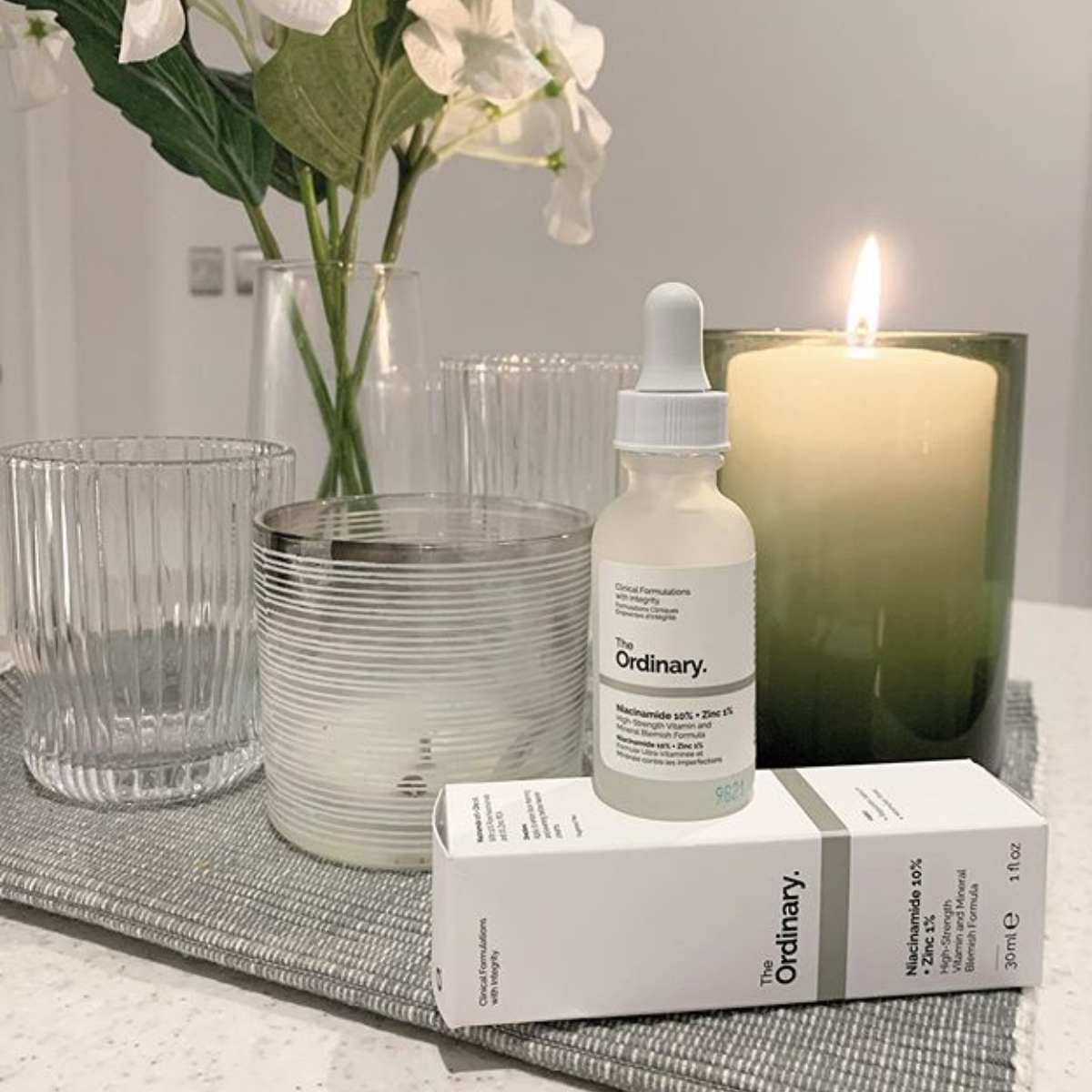
O is for Oil
While you might be reluctant to put oil on your skin, worried it might cause breakouts, plant-derived oils can actually have a really soothing and pampering effect, especially on sensitive skin. Allowing your skin to quickly and easily soak up all the goodness, products like rosehip oil or combined vitamin and plant-based oils can be a great addition to your routine. Apply at the end of your routine right before bed, and you’ll wake up to skin that looks glowing and happy.
R is for Rose
Such a simple one but rose really is a super ingredient for skin. Super gentle making it suitable for even the most sensitive skin, rose has anti-bacterial, anti-inflammatory and antioxidant qualities, leaving skin looking all-over happy and balanced. A general rule is that anything with rose in is going to be very calming on your skin, helping to reduce redness.
S is for Squalane
Squalane is another hydrating hero but this one is especially good for people with oily or acne-prone skin. Squalane, despite being an oil, is super lightweight and noncomedogenic which simply means it won’t settle in and clog up your pores. Instead, squalane sinks right through to the cellular level of your skin, hydrating from within and in turn tackling redness.
T is for Tea Tree
Chances are tea tree was one of the first skincare heroes you were introduced to, so it's a given that our skincare alphabet would include this. But let us be the ones to tell you; don’t put pure tea tree oil straight on your face! Essential oils should always be diluted as they’re harsh and can cause drying. Instead, try a couple of drops on a cotton pad with a toner or mixed into your moisturisers. A favourite treatment of ours is to steam our faces uses tea tree, putting a couple of drops into a bowl of hot water to sit over, or in the bath for an at-home spa experience.
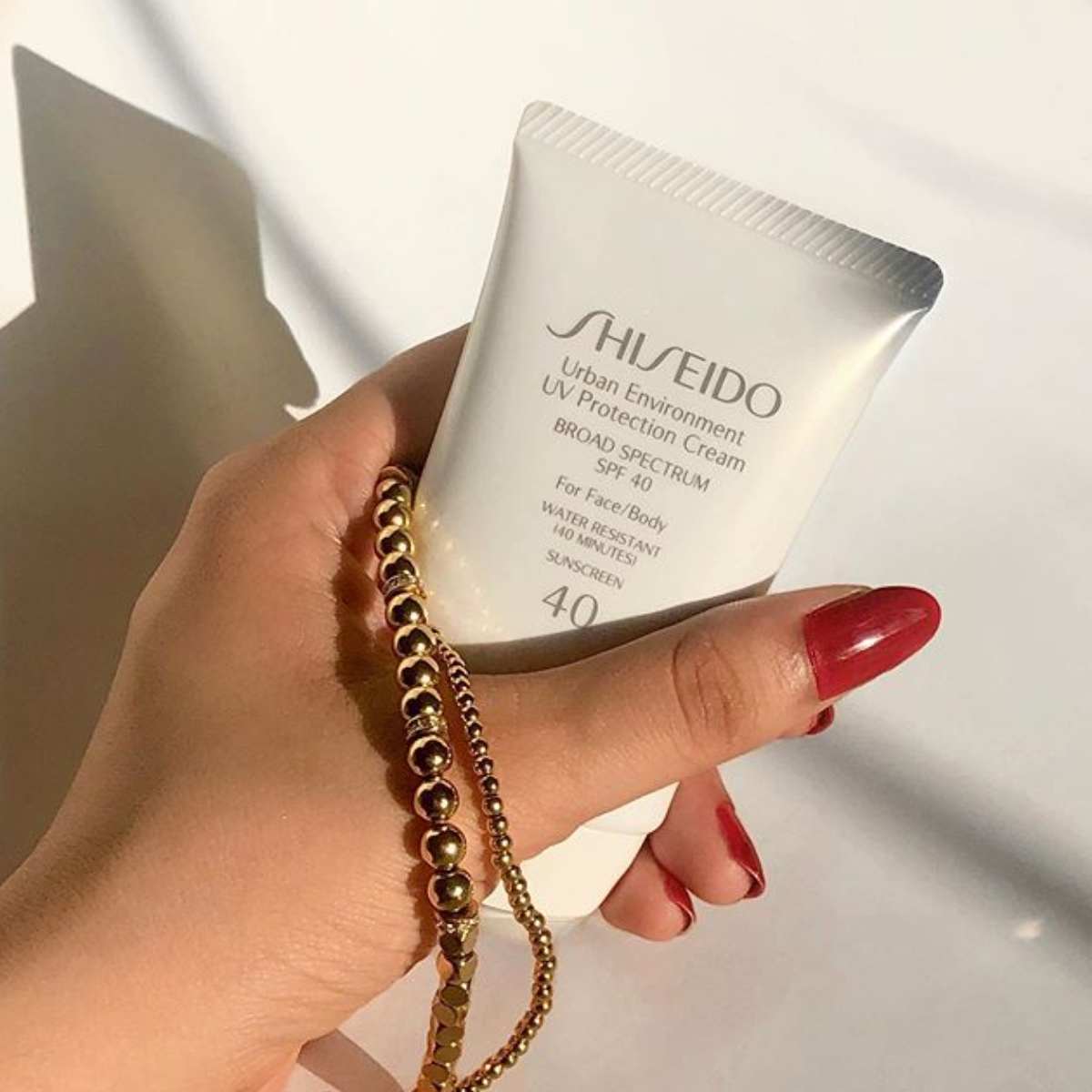
U is for UV Protection
Repeat after us: I must wear SPF daily. Not just a holiday product, SPF should be a daily essential as UV rays aren’t just synonymous with heat. Whether you’re on a daily walk or just sat out in our garden, even if you’re at work in front of your laptop, UV rays are hitting your skin and therefore causing damage. UV rays are the no.1 cause of signs of ageing like fine lines and wrinkles, and also can cause serious health problems in big doses, so keep your skin protected and looking youthful simply by adding an SPF into your daily routine.
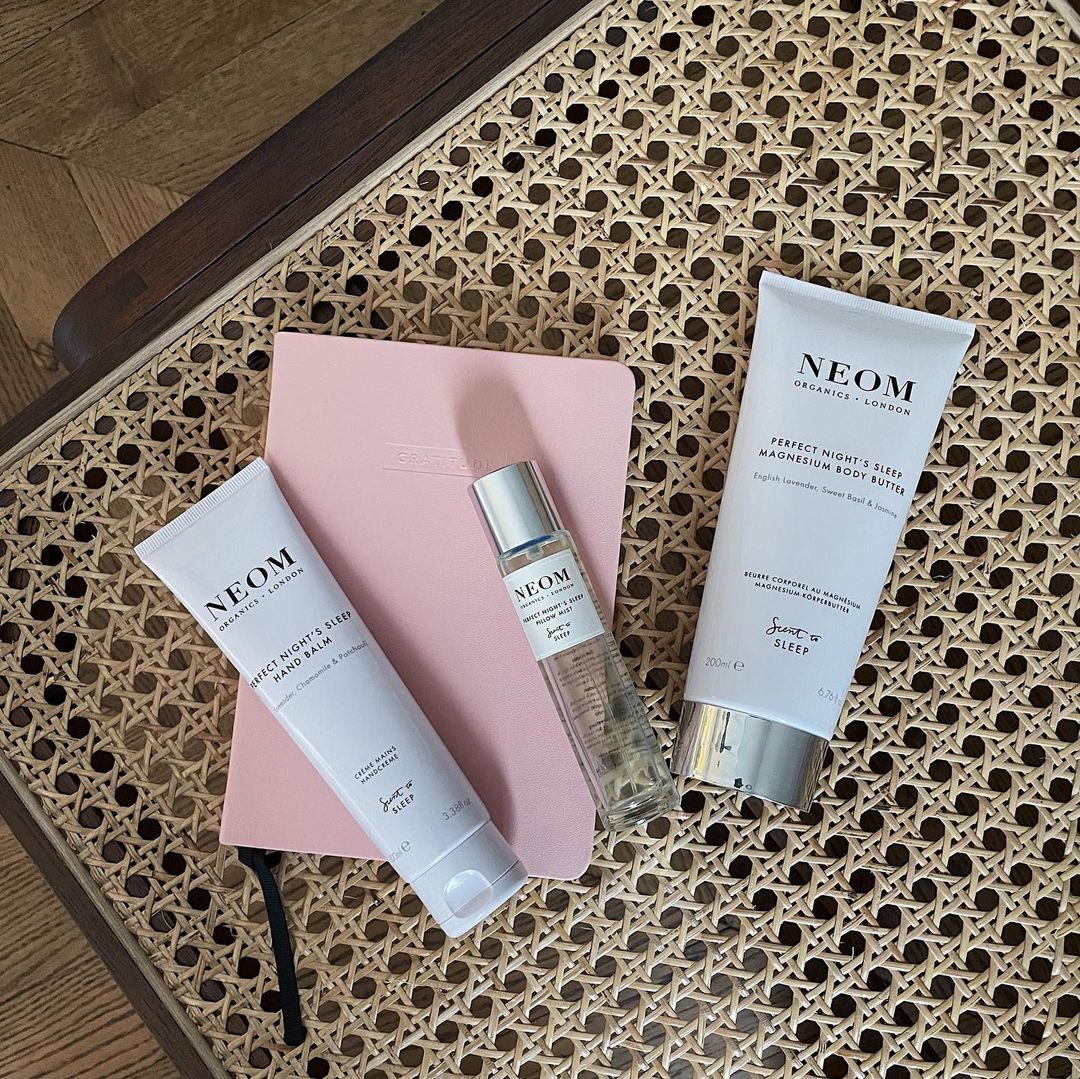
V is for Vitamin C
Another tool for tackling UV damage and early ageing is vitamin C, the wonder vitamin that will give you lively and bright skin. A powerful antioxidant, vitamin C serums are a firm favourite as they help with a huge range of issues including promoting collagen production, balancing complexion, repairing cell damage and tackling hyperpigmentation.
W is for Water
The most vital thing in our skincare alphabet. This goes without saying; drink more water!
Z is for Zinc
Zinc is a great one to take as a supplement, helping your all-over health from the inside-out due to its healing properties. Not only does it help fight off viruses and bacteria, having anti-inflammatory properties consequently, but it also helps regulate your hormones, helping with hormonal acne and also having an added bonus of helping your hair grow faster and healthier. It’s an all-round super mineral to think about adding to your routine.
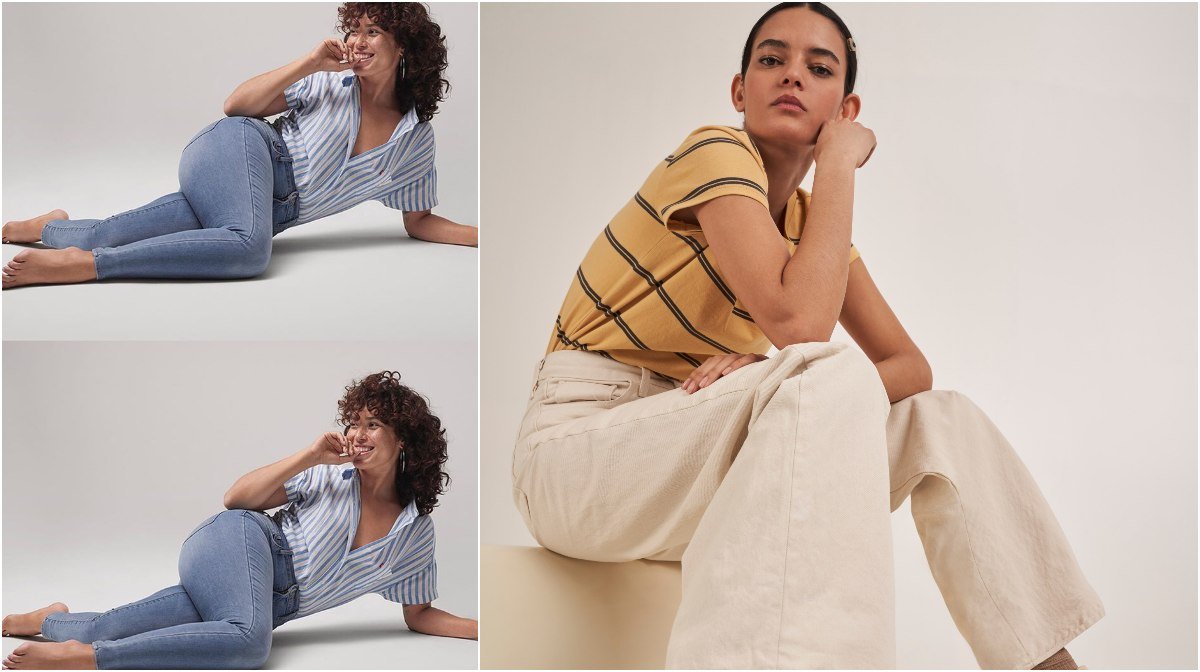
The Best Jeans For Your Body Type
Trying to find the perfect jeans can be a never-ending battle but for a point in the right direction, here’s our guide to the best jeans for your body type.
Featured Imaged Credit – @charlotteinsquares



